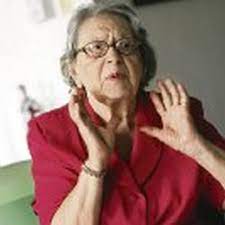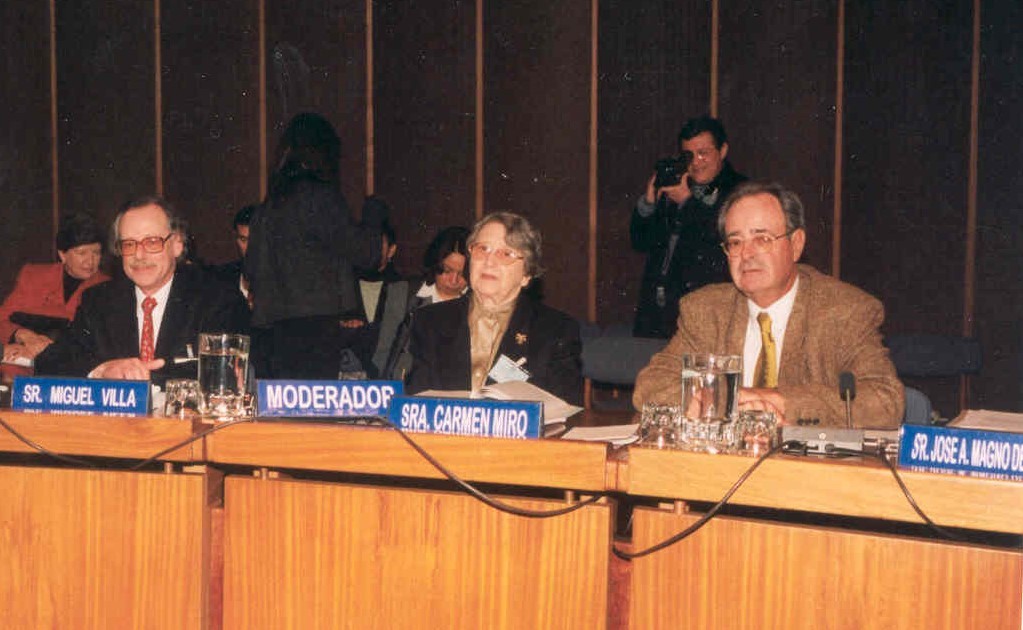
Carmen A. Miró passed away peacefully on 18 September 2022 at the age of 103. She will be remembered as one of the most active women in the history of the IUSSP and in the emergence of Demography as a discipline in Latin America.
Prof Carmen Miró has had a long association with the IUSSP (aka the Union). She became an IUSSP member in 1948, and served on the board of directors as vice president for three terms (1961-62; 1963-64 and 1969-72). From 1973 to 1976, she served as the Unions first female President, and thereafter as Honorary President. She served the Union in other capacities as well: as a member of the Committee on Comparative Studies of Fertility and Family Planning (1963-1970); and as chair of the Committee on Studies on Population Policies in Developing Countries (1979-1983). She made an indelible mark on IUSSP. Her commitment to Demography and Population Studies as a science that is at the same time independent and committed to social development, inclusion and equity continues to define the Union.
Born in Panama, daughter of the poet Ricardo Miró, she was lucky enough to grow up in an intellectual environment that allowed her to have access to solid professional training. She went on to a professional career in positions that were rarely offered to women. As early as the mid-1940s, she became Director of the Department of Statistics of Panama. Panama owes her recognition for its reputation as a country with complete and reliable statistics. Her initial performance revealed vision and commitment that would characterize her life-long career trajectory.
In the late 1950s, she began what would become an important and transcendent journey for Latin American Demography. She directed the newly created Centro Latino Americano de Demografía (CELADE), in Santiago, Chile, with a mission to train professionals with solid knowledge on formal and substantive (or social) demography. Carmen's role was fundamental to the emergence of Demography on the Continent, a Demography that serves as a useful tool for social research to address the continent's social and economic problems.
Her efforts multiplied quickly. She trained many renowned professionals who, in turn, boosted population studies in Argentina, Brazil, Chile, Mexico, Uruguay, and elsewhere, and created important research centers. It was not by chance that the so-called “Population and Development” studies flourished in the 1970s.
In the following decades, Carmen continued to dedicate herself to demography, working tirelessly, leading population and development studies. She was always critical of neo-Malthusianism, and, in a context in which Malthusian theories were practically indisputable, she maintained that demographic dynamics on the continent were related, above all, to the processes of capital accumulation. She stimulated a research process that aimed to offer guidelines for action, and was committed to encouraging the study of public policies and, more specifically, population policies. She succeeded in making population policy makers understand the importance of using data and evidence to guide a coherent policy.
There were two phrases she used, that characterize her perspective and went viral at the time:
- "There are no population problems, what there is are ‘populations with problems’"
- “It is not true that the poor are very poor because they have more children; the poor have many children because they are poor”.
Carmen’s many achievements and enormous contributions have been widely recognized. In 1953, she was elected Fellow of the American Statistical Association. The United Nations awarded her the UN World Population Prize in 1984. She was the recipient of the Doctor Honoris Causa conferred upon her by many universities across Latin America: Universidad de La Habana, Cuba; Universidad de Córdoba, Argentina; and Facultad Latinoamericana de Ciencias Sociales. She was honored by the Latin American Association of Population Studies and the Associação Brasileira de Estudos Populacionais (ABEP) in 2004. More recently, in 2016, she was awarded the “Daniel Cosío Villegas” prize by El Colegio de Mexico.
On a personal level, it is impossible not to mention two memories: Carmen as a formidable teacher, and as a brave and fearless warrior against dictatorship. Her well known straight-to-the-point style instilled fear in many young students. At the same time, during the bloody dictatorship of Pinochet in Chile, she risked her life welcoming and protecting a good number of grateful Chilean and Latin American colleagues persecuted by the regime.
Carmen’s life is an example for all. She will be hugely missed.
Laura Wong

